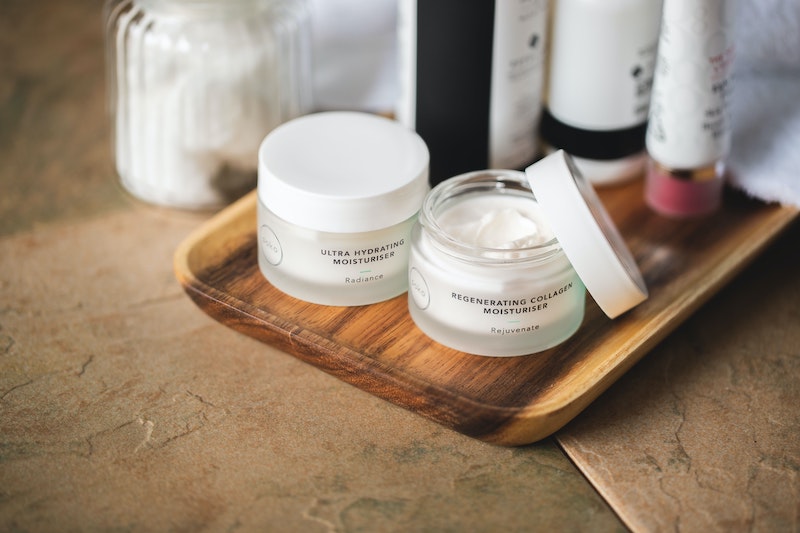When you wear sunscreen, you’re essentially creating a barrier between your skin and the sun’s UV rays. But sometimes, that barrier can backfire.
We’ve all experienced a standard sunburn before – usually because we didn’t reapply when we should have, or were feeling overconfident about an overcast day that ended up sunny.
But in some cases, even when you do apply sunscreen like you’re supposed to, you end up with red, irritated skin. What gives?
If Sunscreen Burns Your Face, You Probably Have Sensitive Skin
Sunscreen can burn your face if you have sensitive skin or if you’re allergic to one of the ingredients in the sunscreen.
If you find your face getting red and irritated, or witness acne outbreaks after a day of wearing sunscreen, you likely have an allergy or intolerance to an ingredient in the sunscreen.
Luckily, there are great sunscreens for people with sensitive skin on the market, and using one of these specialized sunscreens can dramatically reduce your risk of irritation.
For those of you with delicate flower skin, you’ll want to avoid harsh chemical ingredient, like oxybenzone, avobenzone and octinoxate, and opt for physical mineral-based sunscreens with zinc oxide or titanium dioxide.
The downside is that some physical, zinc-based sunscreens for your face can leave a white caste. To fix that, try to find a clear or invisible zinc oxide formula or a tinted mineral sunscreen that has a light skin tint to it to combat the white cast.
Alternatively, you can try a combination sunscreen that uses both mineral and chemical ingredients. Usually combination sunscreens leave the harshest chemical ingredients out, so despite not being a pure mineral sunscreen, you’ll still be less likely to irritate your face.
You Might Have Other Products Reacting Poorly With Sunscreen
Another reason why you may be experiencing facial burns, redness, or itchiness after applying sunscreen is that some other part of your skin care routine may be conflicting with ingredients in your sunscreen.

If you’re using irritants in your routine, such as retinoids, acids, you’ll be susceptible to being irritated by certain kinds of sunscreen that might otherwise not cause issues.
Try using a ceramide-based moisturizer to add some protection back onto your skin before applying sunscreen. You may also want to consider trying Korean sunscreens or other Asian-brand sunscreens, as they tend to be more gentle on sensitive skin.
Help – It Burns! How to Get Sunscreen Off
If you experience a burning sensation after applying sunscreen, it’s important to act quickly and get the sunscreen off of your skin.
- Step 1. First, lift the sunscreen from your face by using an oil-based cleanser or skin-friendly oil such as jojoba oil or grapeseed oil. A gentle makeup remover or micellar water works too!
- Step 2. Next, use a gentle water-based cleanser to remove excess residue.
- Step 3. Rinse your skin with medium cool water.
- Step 4. Apply moisturizer to rehydrate and protect your skin.
If your eyes are burning, getting sunscreen out of your eyes is a bit different – basically for that, you’ll just flush your eyes with water and use a cold compress to help with the discomfort.
What Sunscreen to Look For If You’ve Been Irritated Before
If you’ve experienced a burned face after using sunscreen before, also make sure to look for the following labels on future face sunscreen purchases:
- Fragrance-Free. Fragrances can sometimes irritate those with sensitive skin. Plus, they’re totally non-essential ingredients.
- Non-comedogenic. This means the sunscreen won’t clog your pores, lessening your risk of breakouts.
- Non-irritating. This one’s pretty self explanatory, but a non-irritating sunscreen will obviously be less likely to cause irritation.
- Hypoallergenic. A hypoallergenic sunscreen has been specifically designed to reduce the risk of allergic reactions by leaving out problematic chemicals and ingredients.
- Sensitive Skin Formula. Like hypoallergenic, the sensitive skin formula is another way of indicating that the sunscreen is designed for sensitive skin and won’t irritate your skin.
- Dermatologist Tested. This label means that the sunscreen has been tested by dermatologists to ensure that it won’t cause irritation or adverse reactions.
Sunscreen Alternatives May Be a Better Match
There are always time when you’ll likely have to wear sunscreen to protect your skin, especially on exposed parts of your arms, legs, and torso.
But you don’t always have to resort to sunscreen when it comes to your face – there are other options.
For example, you can try wearing a wide-brimmed sun hat or visor, or using a sun umbrella when outdoors. You can also seek out shady areas to hang out in instead of being in direct sunlight.
You’ll most likely still want to use face sunscreen in certain situations, but if you’re worried about upsetting your skin, hats and parasols can at least lessen the total amount of time you may need to have sunscreen on your face.
Do a Patch Test First
Always err on the side of caution and test out a new sunscreen on a small patch of skin before applying it all over your face. That way, if you do have an adverse reaction, it’ll be limited to a small area. And as always, consult with your dermatologist if you’re having serious reactions to sunscreen or any other skincare
It’s important to be mindful of the ingredients in your sunscreen, especially if you have sensitive skin. If you’ve had a bad reaction to a sunscreen or if you’ve had sunscreen burn your face in the past, try looking for sunscreens that are fragrance-free, hypoallergenic, and non-irritating.
Have you ever has sunscreen burn your face? What did it feel like? Let us know in the comments below!

